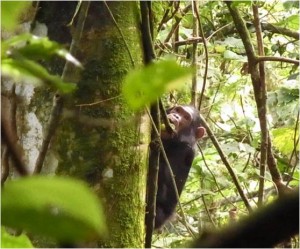January 11, 2012
Exploring Rwanda’s Ecotourism

Promar consultants Chisa Ogura and Shinichi Kawae recently completed field research in Rwanda, for the Ministry of Agriculture, Forestry and Fisheries of Japan (MAFF). Rwanda is a country that is heavily dependent on its ecotourism; in fact, it is the country’s main means of acquiring foreign currency. In 2010, Rwanda earned 207 million USD from tourism-related activities; this is significantly more than the accumulated amount of the country’s two largest exporting products, coffee and tea, which had an export value of 69 million USD in the same year.
Rwanda has three main tourist attractions: Volcanoes National Park where one can capture a glimpse of wild gorillas in their natural habitat; Nyungwe Forest National Park home to chimpanzees and other species of monkeys; and the Akagera National Park. In all three parks, the number of tourists allowed per day is restricted to protect the natural habitat of the wild animals.
Gorillas are by far the most popular wild animal among tourists. They are also the most protected. To minimise the interference humans may have on the gorillas’ natural habitat, guards and rangers allow in a mere 30 tourists per day. In 2007, it cost each visitor 250 USD to join the gorilla tour. In 2011, however, entry fee has significantly increased to 500 USD, and it is expected to further increase in the future.
Ecotourism not only attracts substantial foreign currency, it also has a large influence on the nearby areas in terms of job creation and, ultimately, shapes local society.
